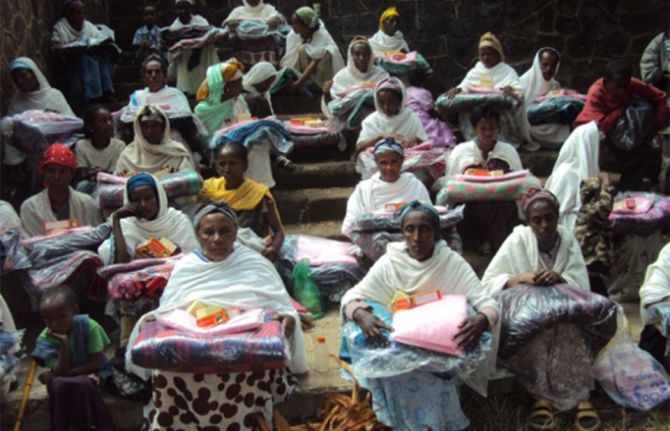
Update
High-level panel on access to medicines
03 February 2016
03 February 2016 03 February 2016The World Health Organization (WHO) hosted a briefing in Geneva, Switzerland, on 1 February on the United Nations Secretary-General’s High-Level Panel on Access to Medicines. Representatives of United Nations missions, international organizations, civil society and the private sector were provided with information on the context for the panel and on opportunities to interact with and submit contributions to its work.
The panel was appointed by Secretary-General Ban Ki-moon in November 2015 to support the attainment of Sustainable Development Goal 3: ensuring healthy lives and promoting the well-being of all. The key outcome of the panel’s work will be an evidence-informed, rights-based analysis of proposals and recommendations to promote the development and production of health technologies in a way that balances trade, human rights and public health.
Through a call for contributions and a series of hearings and global dialogues, the 16 members of the panel and its expert advisory group will consider a number of proposals and recommendations across all diseases, technologies and populations in low-, middle- and high-income countries in order to ensure that no one is left behind.
The United Nations Development Programme, in collaboration with UNAIDS, will serve as the secretariat for the panel, which will present its final report to the Secretary-General in June 2016.
Quotes
“As part of the secretariat of the initiative, UNAIDS is confident that the deliberations of the High-Level Panel on Access to Medicines will assist the global community in eliminating some of the barriers that impede many people accessing life-saving health technologies, paving the way to achieving the Sustainable Development Goals.”
“The High-Level Panel on Access to Medicines is built around the concept of universality, that the public health agenda is relevant to all countries. We expect that it will help build upon and not duplicate all previous efforts.”
“We are talking here about access to new technologies, and that entails both innovation and direct access by patients to these innovations. The work we have been asked to do corresponds with the Sustainable Development Goals and is therefore part of the world’s will to contributing to developing health around the world. The challenge that we are facing is to find solutions that are both innovative and ambitious. ”
Related

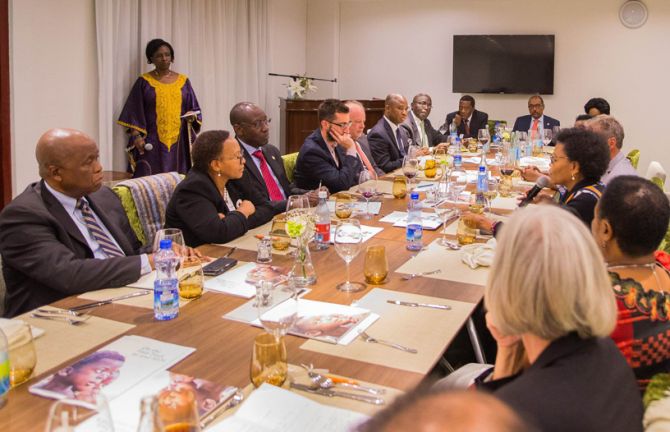
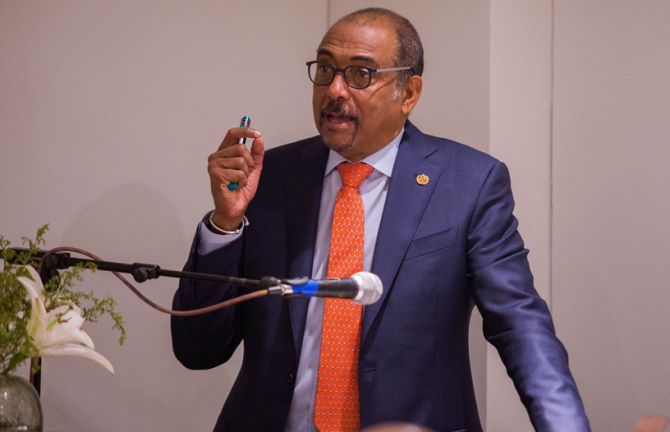
Update
African Union ambassadors mobilize for the United Nations High-Level Meeting on AIDS
04 February 2016
04 February 2016 04 February 2016During a dinner hosted by UNAIDS Executive Director Michel Sidibé, ambassadors attending the African Union summit have pledged their support for the United Nations General Assembly High-Level Meeting on AIDS, to be held in New York, United States of America, in June.
Mr Sidibé described the meeting as a critical opportunity to advance the agenda of the Sustainable Development Goals (SDGs), which include ending AIDS as a public health threat by 2030. He underlined that the AIDS response would also contribute to progress on several other SDGs, including reducing inequality, achieving gender equality and achieving access to quality education and health for all.
Global targets were necessary, added Mr Sidibé, but they had to be broken down to allow the international community to focus on the people and places most in need. As the region most affected by the epidemic, Africa had to be at the centre of the response, he said.
Other guests at the dinner included representatives of embassies from the Americas, Europe and Asia, representatives of United Nations agencies and senior members of the African Union Commission.
Quotes
“We are honoured to have been selected to co-chair the 2016 United Nations General Assembly High-Level Meeting on AIDS. As we approach June, let us be bold and let us work to deliver results. I am calling for an African Union Permanent Representative Council special session to discuss AIDS and the High-Level Meeting on AIDS.”
“I am very worried about dwindling finances for AIDS. Let us compare the cost of ending AIDS with the immense cost of doing nothing.”
“I will work to have high-level participation from my country at the High-Level Meeting on AIDS.”
“The discussion on integration is music to my ears. There was competition between AIDS and other health conditions. I am glad we are moving to integrate efforts as we approach the High-Level Meeting on AIDS.”
“This is a defining moment because we have demonstrated we can win against AIDS. We need to put people at the centre of the response and accelerate efforts to end AIDS as a public health threat by 2030.”

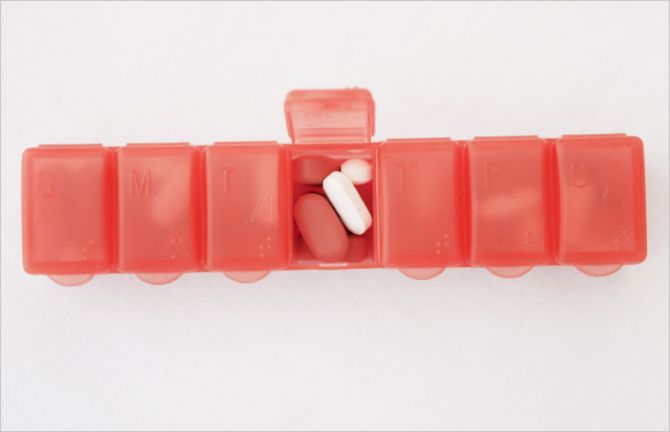
Update
HIV and drug resistance
08 February 2016
08 February 2016 08 February 2016For the majority of people, antiretroviral therapy is extremely effective in treating HIV, allowing people living with HIV to live longer, healthier lives. However, HIV is a complex virus that can adapt and mutate rapidly. This can lead to the virus becoming resistant to a medicine.
Drug resistance is more likely to happen when a person is unable to, or does not, take their medicine regularly as prescribed. Once resistance has developed, the resistant strain of the virus can be transmitted from one person to another. Resistance to medicines can lead to treatment failure, where the medicines no longer keep the virus in check; if this happens, an alternative antiretroviral treatment regimen will be needed.
Comprehensive country data on patterns of HIV drug resistance are scarce, especially in the regions most affected by HIV. However, the medical journal Lancet Infectious Diseases recently published a study by the TenoRes Study Group, which casts more light on global HIV drug resistance.
The study reviewed data on HIV drug resistance in almost 2000 people living with HIV who had treatment failure after first-line HIV treatment with a WHO-recommended drug regimen containing tenofovir. The data were collected from different studies carried out between 1998 and 2015 across 36 countries. The study found more resistance to the antiretroviral medicine tenofovir than had previously been reported, with 20% resistance to tenofovir in patients with treatment failure in Europe and over 50% resistance in patients with treatment failure in sub-Saharan Africa. This finding suggests that tenofovir resistance may be the cause of treatment failure in over half the people who develop treatment failure while on first-line therapy in sub-Saharan Africa.
The study findings do not indicate the need to revise existing global treatment guidelines, since tenofovir-containing regimens remain effective for the majority of people living with HIV starting first-line treatment. However, the findings reinforce the need for an effective vaccine or cure for HIV and the need to ensure that people are able to adhere to prescribed treatment regimens through treatment support and guaranteed supplies of quality-assured antiretroviral medicines in order to reduce the risk of development of tenofovir resistance.
The study underlines the importance of rapidly identifying treatment failure through routine measurement of viral load suppression—this is the basis of the third pillar of UNAIDS’ 90–90–90 treatment target, that 90% of people accessing HIV treatment have suppressed viral loads. Ongoing surveillance for drug resistance in HIV strains from people before they start treatment provides the most reliable indicator that the treatment programme is using the best anti-retroviral regimen.
Quotes
“Patients must be supported to adhere to therapy and to stay in care, and health systems must develop robust ways to monitor the effectiveness of their antiretroviral therapy programmes.”
Related

Update
2016 High-Level Meeting on Ending AIDS
01 January 2016
01 January 2016 01 January 2016The High-Level Meeting on AIDS will take place from 8-10 June in New York.




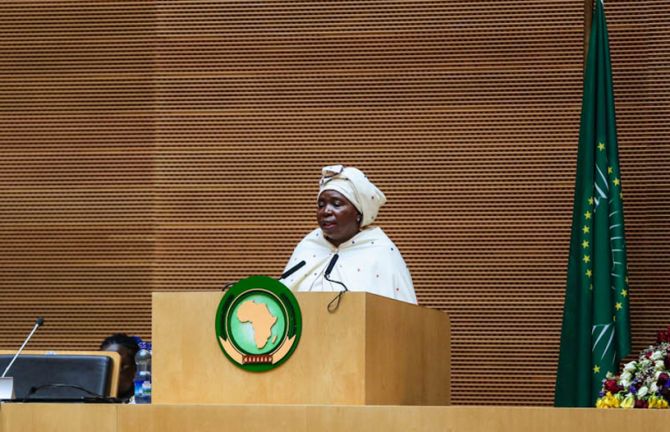
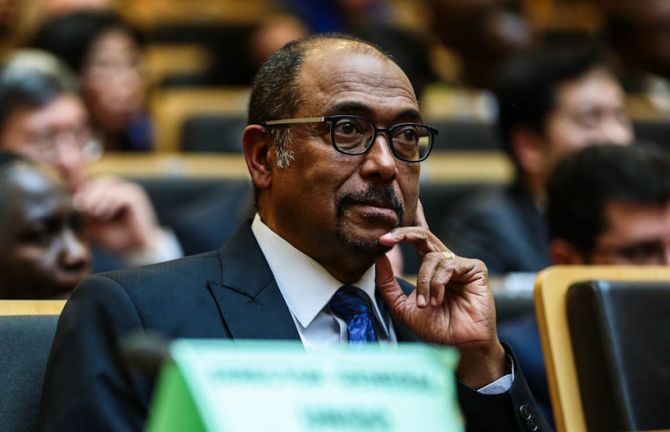
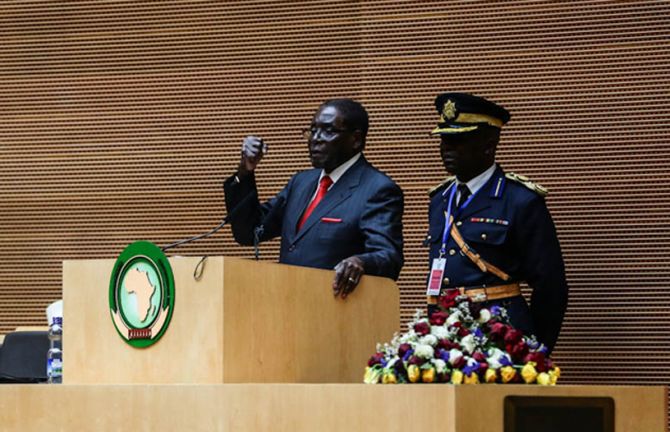
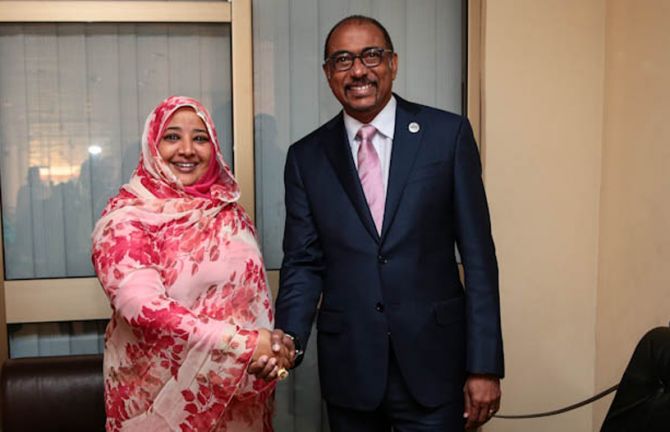
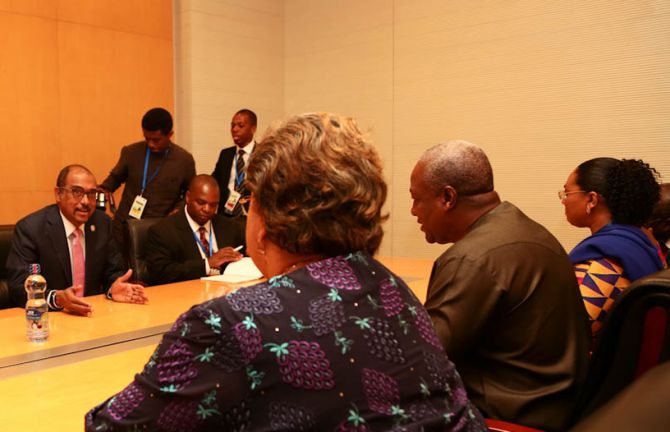
Update
African Union Summit takes place in Addis Ababa with a focus on human rights
01 February 2016
01 February 2016 01 February 2016The 26th African Union (AU) Summit has concluded in Addis Ababa, Ethiopia, under the theme “2016: African Year of Human Rights with a particular focus on the rights of women.”
Also discussed at the summit was Agenda 2063, a 50-year blueprint for Africa’s development adopted to mark the African Union’s 50th anniversary in 2013. UNAIDS Executive Director Michel Sidibé participated in the summit and met several African leaders, including the Prime Minister of Ethiopia, Hailemariam Desalegn.
Mr Sidibé also held bilateral meetings with the President of Ghana, John Dramani Mahama, the first Lady of Sudan, Wedad Babiker, and the President of the African Development Bank, Akinwumi Adesina.
The meeting closed with a ceremony to thank stakeholders who contributed to the African Union’s response to last year’s Ebola outbreak in western Africa.
Quotes
“We should go back to the values of unity, dedication and sacrifice—an understanding that the suffering of others is our suffering. Tomorrow is for our children; let’s nurture them, let’s educate them; let us build the Africa we want.”
“By adopting Agenda 2063, we have boldly taken the path to reclaim our past, and claim our future. If your dreams don’t scare you, they are not big enough. We choose peace, unity and prosperity.”
“Africa already has policies on human rights. Implementation, institution building and investment can be the basis for the African Union’s legacy on human rights. My dream is that Africa provides a shining example of tolerance, acceptance and respect for human rights.”
“The African Union provides a platform through which we can work to end the AIDS epidemic by 2030 as a major contribution to the broader social and economic development that is envisioned by Africa’s leaders.”
Region/country

Update
Lessons from Thailand: integrating HIV services into national health schemes
01 February 2016
01 February 2016 01 February 2016In the late 1990s, the Thai Government started offering free antiretroviral medicines to several thousand people. Apiwat Kwangkaew, currently Vice-Chair of the Thai Network for People Living with HIV, was one of the lucky ones.
“Twenty years ago I got really sick because of AIDS. I didn’t think I was going to make it,” said Mr Apiwat. Within a few months of starting treatment, he was healthy again.
“What was really tragic was that antiretroviral medicines existed, but my friends and other people living with HIV were not accessing them,” he said.
Because of that experience, ensuring access to HIV treatment has been his life’s passion. He is now one of Thailand’s better known advocates for people living with HIV.
Since the 1990s, the situation has vastly improved. In 2002, Thailand became one of the first members of the Association of Southeast Asian Nations (ASEAN) to integrate HIV services into its universal health coverage scheme. Between 2010 and 2014, coverage of people living with HIV receiving antiretroviral medicines increased from 42% to 61%.
Suchada Chaivooth, Director of the HIV and Tuberculosis programme at the National Health Security Office, said that Thailand had found many benefits from this integration. “The government can negotiate a good price for antiretroviral medicines because it’s supplying a large number of people living with HIV,” she said.
Panya Shoosiri, a gardener from Amphur Thamai village in Chantaburi Province, central Thailand, is one of the many people accessing free antiretroviral medicines. He has been living with HIV for more than 15 years. His monthly income is about US$ 100. “All HIV services are covered by the national plan. It’s a big relief for me,” said Mr Panya.
In 2014, Thailand reached a new milestone, becoming the first country in ASEAN to offer free HIV treatment to people living with HIV regardless of their CD4 count, the measurement used to indicate how significantly the immune system has been affected by HIV. Previously, people who tested positive could only access antiretroviral medicines after their CD4 count had decreased to 350 cells/mm3.
“I campaigned hard for this development because I am sure it will save many lives,” said Mr Apiwat. “People living with HIV often only came back to the hospital when they were really sick and by then the antiretroviral medicines didn’t work so well and they were more likely to die,” he added.
Since the new guidelines went into effect, Thailand has seen enrolment on its HIV treatment programme increase by more than 30%.
During a visit to Bangkok, UNAIDS Executive Director Michel Sidibé said, “The AIDS response in Thailand and around the globe has a lot to offer the universal health-care movement.”
Mr Sidibé pointed out that the AIDS response has achieved one of the most remarkable expansions in modern history. In 2000, fewer than 1% of people living with HIV in low- and middle-income countries had access to treatment. The annual cost per person was sky high. As of June 2015, the global number reached 15.8 million people or 40% of the total number of people living with HIV around the world.
He emphasized so much has been achieved in such little time because the AIDS movement has prioritized people. From the early days of the epidemic civil society has played a key role in expanding access to HIV services.
In Thailand, the government earmarks funds for health-care facilities to team up with community groups. “Our HIV programme is one where hospitals work in partnership with community groups to provide prevention services, reaching key populations at higher risk of HIV and providing them with HIV testing and care,” said Ms Suchada.
Region/country

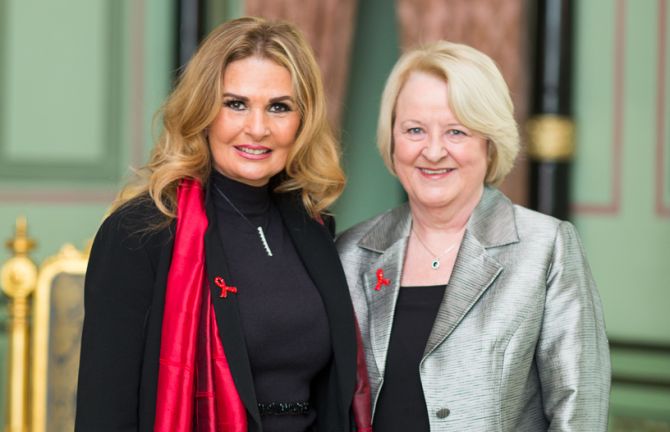

Update
Actress and singer Yousra named UNAIDS Regional Goodwill Ambassador for the Middle East and North Africa
01 February 2016
01 February 2016 01 February 2016Egyptian actress and singer Yousra was appointed as a UNAIDS Regional Goodwill Ambassador for the Middle East and North Africa at an event held in Cairo, Egypt, on 31 January that brought together a wide range of key partners.
The Secretary-General of the League of Arab States, ministers, former ministers, ambassadors, policy-makers, people living with HIV, representatives of the private sector, civil society, United Nations agencies and academia, celebrities and the media came together for the event.
UNAIDS Deputy Executive Director Jan Beagle announced the regional goodwill ambassador appointment, underlining that Yousra, with her iconic status, will be a critical voice for UNAIDS and the AIDS response in the region, particularly in the lead-up to the High-Level Meeting on AIDS, to take place in June 2016 in New York, United States of America.
Ms Beagle stressed that Yousra will be a champion for the implementation and financing of the Arab AIDS Strategy. Her engagement will contribute significantly to ensuring a Fast-Track response to HIV in the region, towards the goal of ending AIDS by 2030.
Speaking at the event, Yousra emphasized her commitment to uniting people across sectors and to being a champion to advance the AIDS response in the region. She underlined the importance of eliminating stigma and discrimination against people living with and affected by HIV and of empowering women.
In 2014, an estimated 240 000 people were living with HIV in the Middle East and North Africa region, which faces growing inequalities, rising migration, escalating humanitarian emergencies and discriminatory laws. To end the AIDS epidemic in the region, there is a strong need to address the determinants of these vulnerabilities and deliver holistic services free from stigma and discrimination to people living with and at risk of HIV.
Quotes
“We should all work together to end AIDS by 2030, in line with the Sustainable Development Goals. I call on all members of the Arab League to develop and implement national strategies and programmes aligned to the objectives and priorities of the Arab AIDS Strategy, endorsed by the Arab Council of Ministers of Health in 2014.”
“Yousra is the right person at the right time—she will be a critical voice for UNAIDS and the AIDS response in the Middle East and North Africa, promoting the implementation and financing of the Arab AIDS Strategy.”
“It is indeed a historic moment for me. I consider it a blessing to be able to have this golden opportunity to give hope and love, along with other UNAIDS Goodwill Ambassadors around the world, to people excluded from their communities, faced with constant stigma and discriminated against in all aspects of their lives.”
Region/country
Related
 Government ensures continuity of treatment in Malawi
Government ensures continuity of treatment in Malawi

10 February 2025

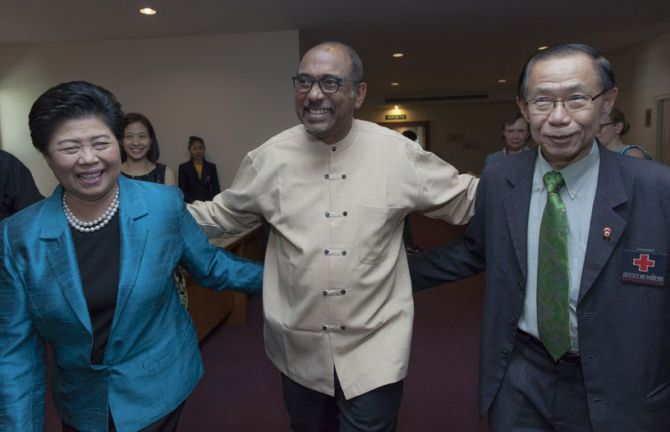
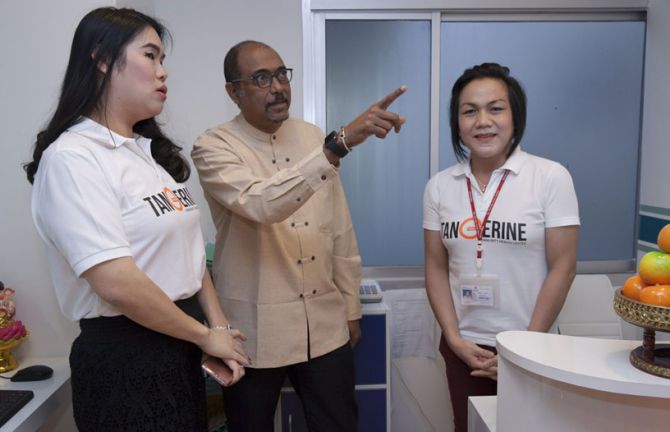
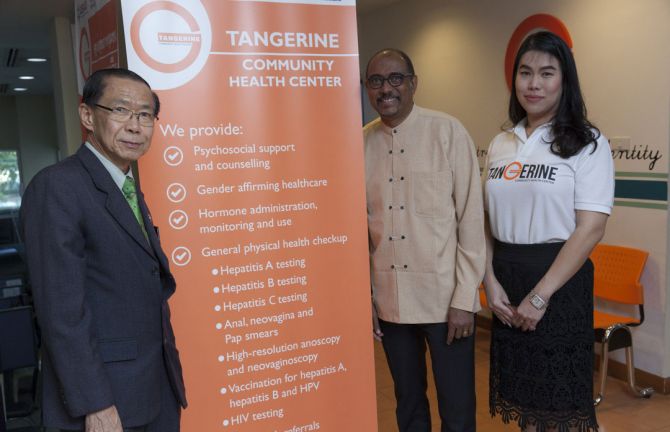
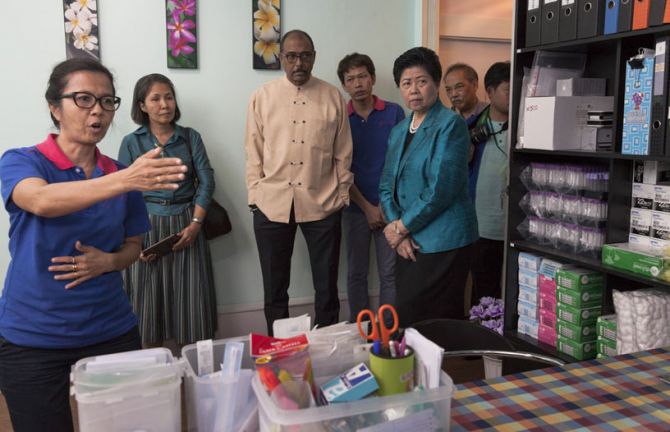
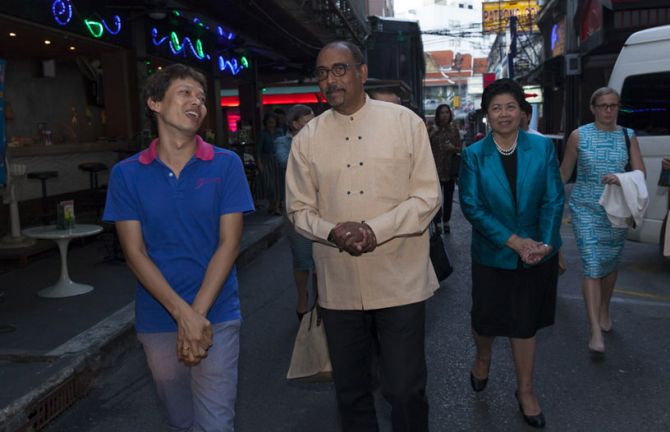
Update
Global health leaders set priorities for achieving universal health coverage
29 January 2016
29 January 2016 29 January 2016Public health leaders and key stakeholders from around the world have come together at the Prince Mahidol Award Conference to discuss how limited health resources can be used in the most cost-effective way to provide high-quality health care.
Her Royal Highness Princess Maha Chakri Sirindhorn opened the conference by saying it came at a key moment since it followed the adoption of the Sustainable Development Goals by countries late last year. The UNAIDS Executive Director Michel Sidibé delivered a keynote address speaking about the need for a paradigm shift, moving from a disease response to a people-centred approach.
The conference, which is taking place in Bangkok, Thailand from 26 to 31 January, is being held under the theme Priority Setting for Universal Health Coverage. It is welcoming more than 900 government officials, representatives of intergovernmental organizations, international development partners and researchers from around 50 countries.
Thailand is one of the countries that have succeeded in putting people at the centre of their universal health coverage plan. Thailand champions the scale-up of community-led services. The Bangkok Metropolitan Administration, for example, works closely with civil society and communities.
During his visit to Thailand, Mr Sidibé visited two community-led programmes with Ms. Pusadee Tamthai, the Deputy Governor of Bangkok. One was the Service Workers in Group Foundation, better known as SWING, which supports sex workers by providing screening for sexually-transmitted infections, HIV counselling, testing, treatment, care and support services.
Mr Sidibé also visited the Tangerine clinic, housed at the Thai Red Cross AIDS Research Center, which is the first clinic to offer comprehensive sexual health services to transgender people in Thailand. Mr Praphan Phanuphak, Director of the Research Center, is a pioneer in the AIDS movement and demonstrates how science, integrated into community work, brings health care to even the most marginalized people.
Quotes
“It is time to address the critical linkages between health, injustice, inequality, poverty and conflict. Our collective challenge towards universal health coverage will be how to reach the most vulnerable and marginalized—the hardest to reach.”
“As we set priorities, let us keep people at the centre, particularly the most vulnerable.”
"We believe that equitable services are about equal partnerships with communities and civil society so the Bangkok Metropolitan Administration values and continues to strengthen its collaboration with community organizations in the delivery of HIV and other essential health services."
“Empowering people is essential for good universal health coverage, as only if people have a voice will they ask for the services they really need. SWING and other community networks and civil society organizations are working with the Bangkok Metropolitan Administration to ensure their voice is heard.”
Speeches
Region/country

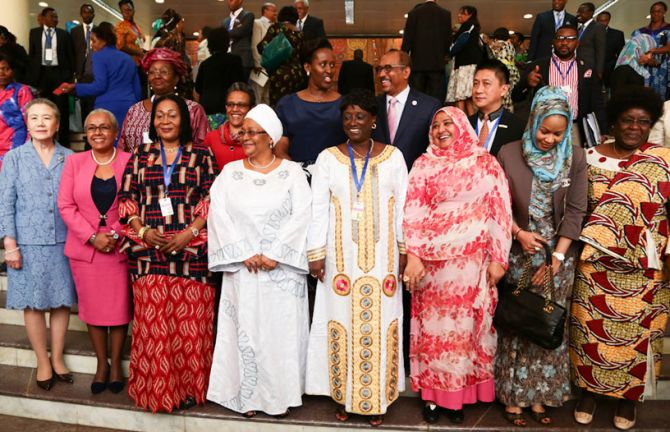
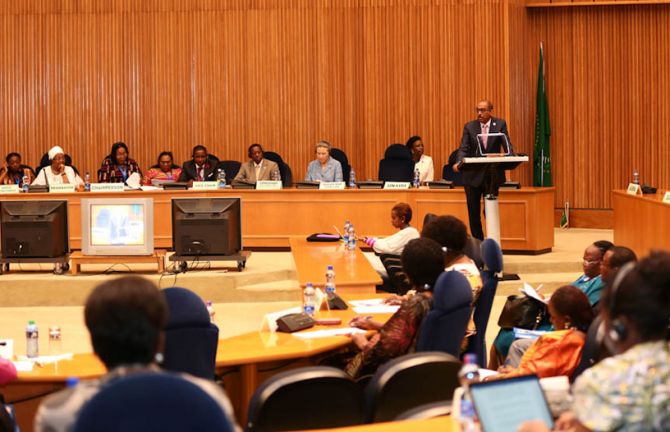
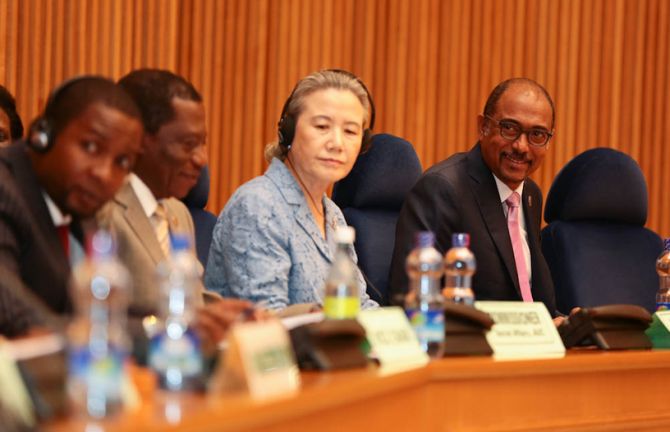
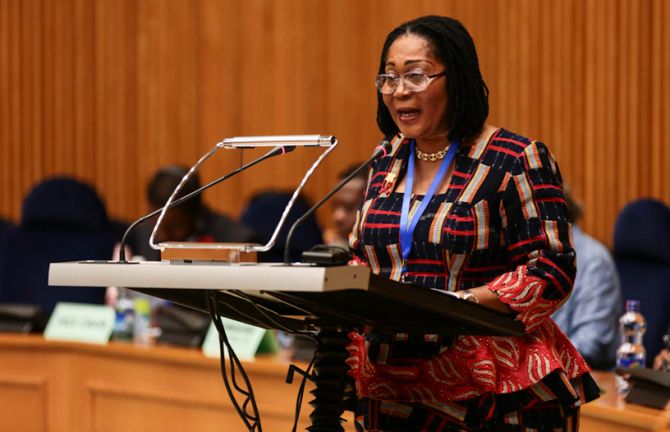
Update
African First Ladies reaffirm commitment to work towards ending the AIDS epidemic
01 February 2016
01 February 2016 01 February 2016Ahead of the United Nations High-Level Meeting on AIDS, which will take place in New York in June, the Organisation of African First Ladies against HIV/AIDS (OAFLA) has called for the response against the epidemic to be stepped up.
Meeting in Addis Ababa, Ethiopia, OAFLA First Ladies recognized the huge progress already made in reducing the impact of HIV, but warned against complacency, calling on stakeholders to increase investment in the response. The First Ladies said more resources were required to prevent new HIV infections among children and keep their mothers healthy and alive and to broaden access to testing services. They also said that increased resources were necessary in order to ensure that people access treatment immediately if need be, to allow young people, particularly young women and girls, to access combination prevention services, and to end gender-based violence, which increases the risk of HIV exposure.
Addressing the OAFLA General Assembly, UNAIDS Executive Director Michel Sidibé congratulated the First Ladies for playing a transformative role by championing social justice and keeping the issue of HIV high on the political agenda. He added that achieving zero mother-to-child transmission of the virus, reaching universal health access for children and ending the AIDS epidemic by 2030 were possible if the right decisions were made now.
Quotes
“Let us use our voices to bring an end to the AIDS epidemic among children and improve the sexual health and rights of adolescents.”
“Promoting human rights and gender equality is an end in itself but also critical to effective and sustainable HIV responses. Protecting and promoting women’s sexual and reproductive rights are central to enabling women to protect themselves from acquiring HIV.”
“We need your leadership now more than ever to end the AIDS epidemic by 2030 by protecting our girls, by ensuring that young women and girls have access to reproductive health services and rights and by ending violence against women and girls.”
Region/country
Related

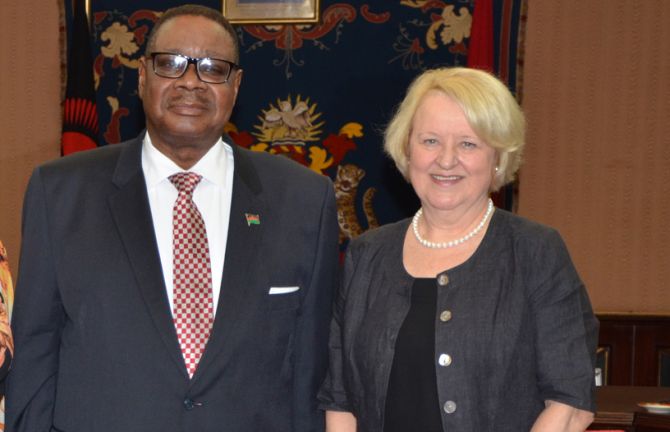
Update
Malawian leadership in action to Fast-Track AIDS response
27 January 2016
27 January 2016 27 January 2016As Malawi commences its term as a newly elected member of the UNAIDS Programme Coordinating Board (PCB), the President and First Lady have emphasized their commitment to leading the AIDS response in the country and ending AIDS by 2030.
The President and First Lady of Malawi expressed their commitment to Malawi's PCB membership, and to work towards a strong Political Declaration at the United Nations High-Level Meeting on HIV/AIDS, which will take place in June 2016 Meeting, during discussions with UNAIDS Deputy Executive Director, Jan Beagle. Ms Beagle is visiting Malawi and meeting with stakeholders from the government, civil society and international partners to prepare the Malawi’s participation at the PCB for the 2016–2018 term and UN High-Level Meeting on HIV/AIDS.
In 2014, an estimated 1.1 million people were living with HIV in Malawi, the prevalence rate being 10%—one of the highest in east and southern Africa. However, Malawi is making significant strides in scaling up its response, including by being the first country in the region to officially endorse the 90–90–90 treatment target in its national strategic AIDS plan.
The results have been significant. According to latest national data, some 600 000 Malawians are estimated to be receiving antiretroviral therapy and the number of annual new HIV infections has been reduced from 89 000 in 2004 to 42 000 in 2014. Moreover, Malawi’s bold decision in 2011 to implement option B+, the approach that recommends starting treatment for pregnant and breastfeeding women living with HIV regardless of CD4 count, resulted in a sevenfold increase in the number of women initiated on antiretroviral therapy and a decrease of mother-to-child transmission of HIV by 66%, according to latest government data.
In discussions with Ms Beagle, President Arthur Peter Mutharika recognized the critical importance of UNAIDS’ support to ensuring that Malawi’s HIV response is supported by one of the largest grants made by the Global Fund to Fight AIDS, Tuberculosis and Malaria. President Mutharika also stressed that he looked forward to a strong outcome from the upcoming United Nations High-Level Meeting on HIV/AIDS.
The First Lady of Malawi, Gertrude Mutharika, reflected on the priorities for her country’s PCB membership and the High-Level Meeting on HIV/AIDS. The First Lady and Ms Beagle also discussed opportunities for leveraging her role as Vice-Chair of the Organisation of African First Ladies against AIDS to help enable the AIDS response in Malawi and beyond to be Fast-Tracked.
Welcoming Malawi to PCB membership, Ms Beagle commended Malawi on the political leadership shown by the early adoption of option B+, as well as the integration of the prevention targets in the national strategic plan, emphasizing that such examples of leadership can help ensure bold outcomes at the High-Level Meeting on HIV/AIDS in June.
Quotes
“You can count on my government doing its part to push for a strong Political Declaration at the 2016 High-Level Meeting on HIV/AIDS.”
“I have no doubt in my mind that together we can leave a legacy for a future where AIDS is no longer a public health threat—we look to the future with hope!”
“Malawi’s political leadership has demonstrated how ambitious targets and commitment can deliver results through broad partnerships with civil society and international partners. This kind of leadership will be critical to ensuring that the High-Level Meeting on HIV/AIDS in June adopts a bold Political Declaration to Fast-Track the AIDS response.”
Region/country
Related
 “Who will protect our young people?”
“Who will protect our young people?”

02 June 2025
 Impact of US funding cuts on HIV programmes in Malawi
Impact of US funding cuts on HIV programmes in Malawi

15 April 2025







